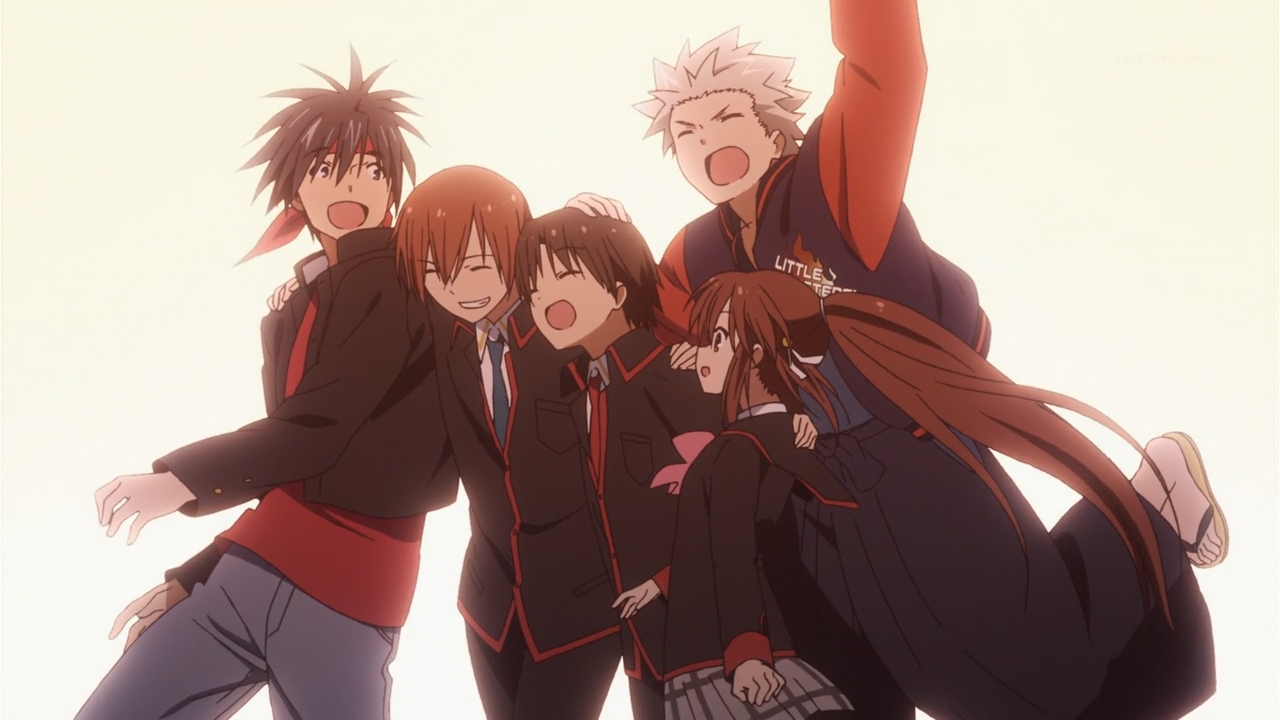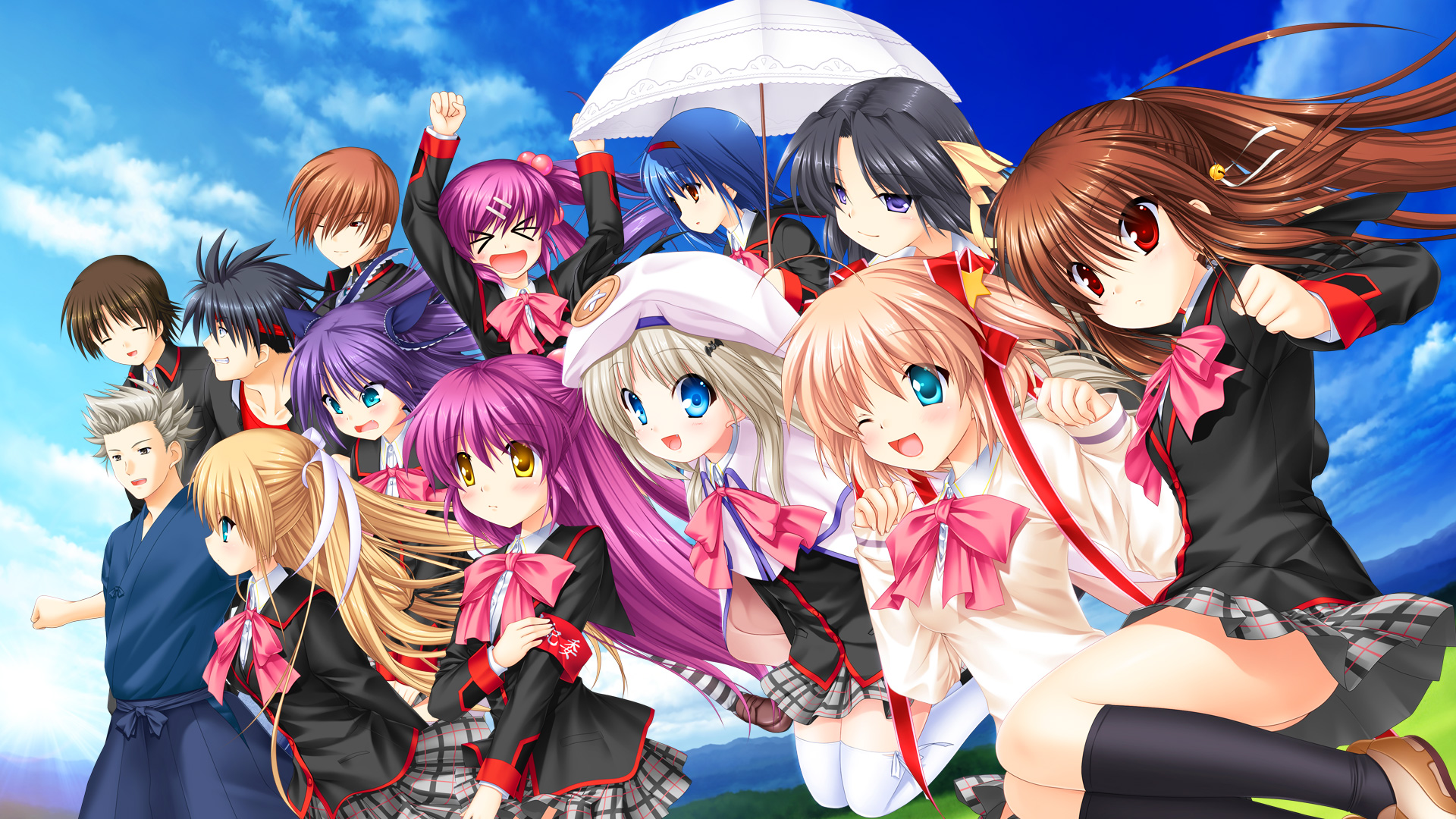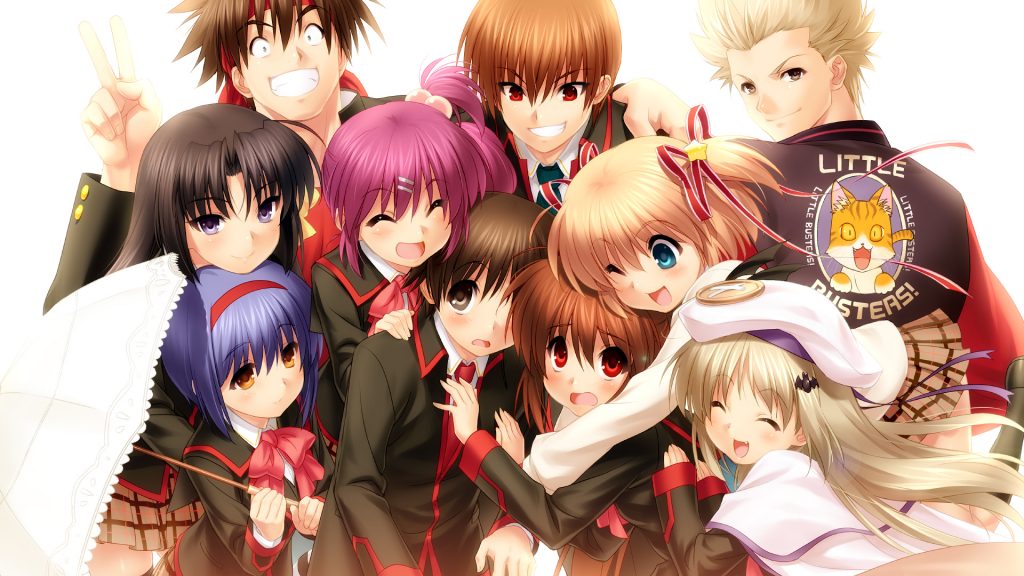The longer I go about living, I see it’s the relationship that is most meaningful.
William Shatner
Warning! There are spoilers for the following titles: Little Busters!, Persona 4, Nier: Automata, and (old) Star Trek related shows/movies.
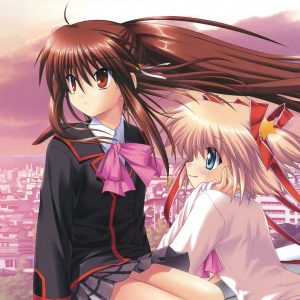 About a decade ago, I had noticed a certain group of characters with similar art styles being used in forum signatures. The character design had gotten me interested enough to look into where they had come from. That was when I found out they were from a visual novel called Little Busters! and were also the people behind my “gateway” anime, Kanon 2006. From that day on, my life had been changed forever.
About a decade ago, I had noticed a certain group of characters with similar art styles being used in forum signatures. The character design had gotten me interested enough to look into where they had come from. That was when I found out they were from a visual novel called Little Busters! and were also the people behind my “gateway” anime, Kanon 2006. From that day on, my life had been changed forever.
Prior to playing Little Busters!, I had always been aware visual novels usually contained adult content. It was for that reason I had avoided them. Not only was I underage for them at the time, thankfully I was aware adult content was often used entice a certain demographic into playing the game. I had always felt having adult content often sullied the story and distracted the reader from being able to appreciate the story. Having only been exposed to the anime adaptations of some of Key’s visual novels contributed to that particular opinion. As such, you can perhaps imagine my delight when I found out Little Busters! was released to be a non-erotic visual novel.
Unfortunately, since I was nowhere near fluent in Japanese, there was the inevitable barrier preventing me from fully enjoying the game. Even the fansubbing group (led by a person named applehq), at the time, had only completed translating a small portion of the common route and Kurugaya’s route. However the story was extremely captivating and had held my interest with a firm grip. It was for that reason I held no qualms or contempt for the fansubbing group. In fact, because of the lengthy gaps between each route, I would find myself re-reading a large majority of the game to re-familiarize myself with the story. By doing so each time, I had unknowingly experienced the story exactly how Key had intended the readers to. Upon completing the game, I was astounded at how well constructed the narrative of the story was. My friend, Nightmaren, has already written an incredible blog post analyzing the characters and the structure of the story and I highly recommend reading it.
So now fast forward to several years into the future and Steam had announced Little Busters!: Perfect Edition (includes the extra routes) had been greenlit and would soon be released in English. Of course, I was excited to hear the news and was ecstatic knowing there would finally be an opportunity for me to support the company that wrote one of my favorite stories of all time.
But why?
What about Little Busters! was so special? Why am I making such a big deal out of a game of all things? In order to explain, it would be best to start off by describing myself from an early age.
While I was never really shy, I never made many attempts to be very outgoing. I also often moved to different places throughout my childhood. It was only around high school when I began to make friends online from forums I would frequent. I was able to connect with people in a way I never could have with those immediately around me. That’s not to say I never had any local friends that I enjoyed spending my time with. In fact it would be the opposite; however my parents would often decline my requests to go out. As such, I often opted to stay home in order to avoid bothering my parents.
Time would pass, friends would come and go. In one community, out from another. Just like anywhere else with anyone else, I found myself making acquaintances, losing contact of old friends, and forging new bonds. It didn’t take long for me to recognize and appreciate the dynamics of small social circles. I began to understand who I enjoyed spending time with and what it was that made those everyday interactions so valuable me. At that moment, I finally understood what it was that I had with these friends… a family.
About half a decade ago, I had made an audio blog on the importance of family. Most of what I had said honestly comes off as a bit “preachy”; however there was something I had mentioned briefly that never got explained further: families aren’t restricted to blood relations. It may not be the most enlightening of concepts, nevertheless the point still stands. There are many who would consider their long time friends to be important enough to practically be a member of the family. Perhaps the best example of a family with no blood relations would be the Little Busters group.
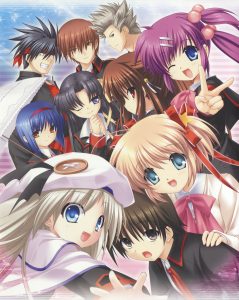 Kyousuke, Rin, Kengo, Masato and Riki had all grown up together since childhood. They’ve all come to know every little thing about each other. Their likes, dislikes, weaknesses, and strengths. Despite how polarizing Kengo’s and Masato’s personalities are to each other, they tolerate each other to an extent where one would have to wonder why they bother. It’s really not all that different from how my little sister and I interact with each other. Yet what is it that gives the Little Busters such a warm feeling to the reader? Why is it when Rin kicks Masato’s head, we can’t help but feel a bond that can never be severed? Why do they feel so much more wholesome than so many other group of friends I’ve seen in other stories?
Kyousuke, Rin, Kengo, Masato and Riki had all grown up together since childhood. They’ve all come to know every little thing about each other. Their likes, dislikes, weaknesses, and strengths. Despite how polarizing Kengo’s and Masato’s personalities are to each other, they tolerate each other to an extent where one would have to wonder why they bother. It’s really not all that different from how my little sister and I interact with each other. Yet what is it that gives the Little Busters such a warm feeling to the reader? Why is it when Rin kicks Masato’s head, we can’t help but feel a bond that can never be severed? Why do they feel so much more wholesome than so many other group of friends I’ve seen in other stories?
The answer is actually simple: from how we experience the story.
It’s been well established by research that storytelling helps with personal growth. Through those stories, we learn life lessons, ideologies we had never considered, and even mistakes we should take caution of. Although needless to say, stories can also help foster the growth of personal values by having characters demonstrate magnificent feats in order to protect said values. Depending on the way it’s written, a story can easily influence its reader to accept and carry these values.
Before this post, I attempted to dissect my own thoughts numerous times and came to conclusions that were unfortunately half baked. I’ve also made the mistake before of writing posts as to why I liked every single character of Little Busters. It didn’t take too long before I realized that the point was moot and all I was doing was writing a synopsis of each character’s route in the game. In the end, it took another game for me to understand even more and solidify my ideals: Persona 4: Golden.
For anyone that’s played the game, the theme of Persona 4 is clear from start to finish: friendship. Throughout the entire game, the goal and intentions of the characters were clear. Not once did Persona 4 deviate from its theme and maintained a consistency most others would pale in comparison. The way players got to know the characters is very similar to how players got to know the Little Busters!. After all, starting from Persona 3, it has been known to be a hybrid of the classic JRPG and a visual novel. I found this particular element of the game intriguing as it allowed me to essentially “spend time” with the characters. Its format allowed the player to plan out how they want to experience each day and with whom they would like to spend their time with. What better way is there to allow players to interact with their favorite characters?
Oddly enough, I was also watching Star Trek: The Original Series at the time. I had never started watching any of the Star Trek series until a friend convinced me to do so. Around 2014, I finally began watching the very first series in the Star Trek universe. As you can imagine, I was hooked; this was the right kind of show I’d be able to enjoy. Not only were the stories engaging and interesting to watch, the core characters of Star Trek: TOS captured my heart. Seeing the way Spock would mock McCoy, McCoy trying his best to exact revenge only to have it backfire, and then having Kirk act as a balance between the two… the relationship these three was extremely charming. Not only that, the way they supported and criticized each other was extremely refreshing. Those three held a dynamic I had never seen anywhere else. It’s no wonder they would be referred as the space equivalent to the “Three Muskateers” from time to time. Even if Spock were to disagree, I’d say the bond they shared was that of a loving one.
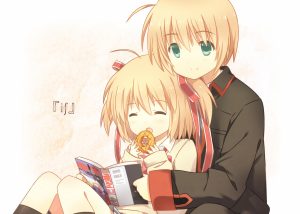 I’ve once explored the idea of “love” and expanded on the various definitions of the term using Greek terminology. To quickly summarize, there are three types of love Greek philosophers have categorized: Eros, Philos, and Agape. Eros is the physical “love”, the erotic kind of attraction people naturally feel. Philos is the kind of love you find between friends and family. Agape is often associated to mothers and gods; this kind of love is an unconditional one where nothing can deter that individual from loving another. From this, I’m sure you all can easily infer what I’ve been describing between the Little Busters, Persona 4, and Star Trek: TOS is the “philos” kind of love. Unfortunately, there are not many who can present a bond as strong as the three examples I just provided. In fact, there’s a large pool to select where either the show or the video games fail to properly create this sort of dynamic.
I’ve once explored the idea of “love” and expanded on the various definitions of the term using Greek terminology. To quickly summarize, there are three types of love Greek philosophers have categorized: Eros, Philos, and Agape. Eros is the physical “love”, the erotic kind of attraction people naturally feel. Philos is the kind of love you find between friends and family. Agape is often associated to mothers and gods; this kind of love is an unconditional one where nothing can deter that individual from loving another. From this, I’m sure you all can easily infer what I’ve been describing between the Little Busters, Persona 4, and Star Trek: TOS is the “philos” kind of love. Unfortunately, there are not many who can present a bond as strong as the three examples I just provided. In fact, there’s a large pool to select where either the show or the video games fail to properly create this sort of dynamic.
An example would be one of the last scenes you witness in your first playthrough of Nier: Automata. Upon defeating Eve, 2B notices 9S is being corrupted by the Machines. In order to prevent the Machines corruption from spreading to Androids’ network, 2B is forced to kill 9S. Even if 9S wouldn’t be “dead”, the memories he had accumulated from his last backup to that point would be gone, forever. Ergo, that would effectively make 9S “dead” in a manner of speaking. This would have had much more of an emotional impact had it not been for two things:
One, the game progresses fairly quickly. While there are instances where the game suggests a period of time has passed, you never really know when the memories have been updated in a location called “The Bunker”. We, the player, can safely assume every time we save the game, we’ve “updated” The Bunker of the Android’s memories. With that in mind, when 9S is dying, there is very little loss in the end. So how are we supposed to even reciprocate the emotions 2B expresses in the scene when we know 9S will ultimately be more or less the same? The impact would have been far more drastic had it been perhaps a years worth of memories spent together. Hell, even a month. To make it worse…
Two, 9S ends up saving himself through some witchcraft and spread his memory through the Machine network in a very short amount of time. So not only was the emotional impact just lacking to begin with, it turns out there was no need to feel emotional at all. A very cheap way of making the player have “the feels”.
In Star Trek II: The Wrath of Khan, the whole was shaken by the iconic scene when Kirk is faced with his dying friend, Spock. This scene only worked because the relationship between the captain and first officer had been heavily established through the many episodes of Star Trek: The Original Series. Even through the movie alone, the relationship between each of these characters are well established through dialogue and subtle actions the actors perform. You can tell from the scene that there was a severe impact not only to Captain Kirk, but to everyone who knew Spock. The way the scenario was framed and executed, you knew from the core that this had a very genuine feel of sorrow and sadness. You’d be hard pressed to find anyone who would disagree on just how saddening this scene made its viewers.
Now finally, let’s talk about the final arc of Little Busters: Refrain.
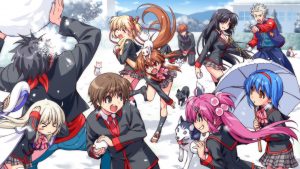 As explained in my friend’s post, the term “refrain” is being referred by its musical definition, meaning: “a repeated line or number of lines in a poem or song, typically at the end of each verse”. Normally we would view each “route” in a visual novel as its own separate story, however Little Busters cleverly ties each route to one whole story. What we originally thought were stand-alone stories were all part of a plan to force Riki to relive those same days over again. Kyousuke, who was effectively a god, had staged all of this in order to help Riki mature so that he can live normally in the real world without having to depend on his friends.
As explained in my friend’s post, the term “refrain” is being referred by its musical definition, meaning: “a repeated line or number of lines in a poem or song, typically at the end of each verse”. Normally we would view each “route” in a visual novel as its own separate story, however Little Busters cleverly ties each route to one whole story. What we originally thought were stand-alone stories were all part of a plan to force Riki to relive those same days over again. Kyousuke, who was effectively a god, had staged all of this in order to help Riki mature so that he can live normally in the real world without having to depend on his friends.
When the moment finally came with Kyousuke finally explaining the secret behind the world, I found myself shaken to the core. They had built Kyousuke up to be a god for so long that when he finally broke, I finally saw the human side of him. To see him with so much sorrow, so much regret, and with so much anguish written all over his face, I was honestly torn apart.
Finally the secret had been revealed and you are practically kicked out of the now crumbling dream world. This whole time, the repetition, the joy, the pain, the laughter, the sorrow, the laughs, the secret… it was all for Riki. How can you not describe that kind of love other than agape? Sure, Kyousuke’s methods were questionable, however his intent was clear and you can tell it was purely out of love.
Now imagine having to leave your friends, who helped foster your growth in order to cope with the real world, knowing you are completely unable to save them? Just when you think the game is finally over, you see dialogue slowly fade into the screen.
It’s enough, isn’t it?
You are then given two choices: It is enough, or it is not enough.
Most people would argue that Little Busters should have ended right then and there. This happy ending that would soon proceed soon thereafter would be that “feel good” ending most people believe would sully the message and effort the dying friends were trying to impart onto Riki and Rin. I honestly can’t argue against that on an objectionable view. But you see… after playing the game for so long, these people were my friends, my family. Placing myself in Riki’s shoes, these people were all that I had left. Knowing that it’s selfish, knowing that it’s unreasonable, and knowing that it could kill me, I would do my best to save my family.
I wanted that happy ending so badly. This was something I was personally invested in. I could no longer just see these characters as that, characters. I had become friends with these people and I wanted to save them. I understand how unrealistic and almost childish that may seem (especially the fact I’m considering fictional characters as friends), but I stood firm in this stance. Every time I think of the situation and were to replace it with all of my actual friends, I question myself.
Would I have done the same? Knowing they did their best to help me cope with the world, could I abandon them in order to save both myself and Rin?
Without hesitation, I always come to the same answer.
No.
You see, especially by now, even at the age of 27, I have examined and evaluated my ideals and values. With the help of my friends, I’ve come to recognize everything I hold closest to me and I’ve kept those values firmly in my grip. Those who I am willing to consider my friend, my family, I will always do what I can to keep them near me. If there was even a sliver of a chance I could save them, I’d take it no matter what. I love them.
When I first came to the answer though, that’s when I finally came to realize what I always held to be one of the most important things for me to treasure: friends and family. This resulted in assessing on how I approach others, how they approach me, how I consider each person to be like, how they are to me, and so on. While this may have caused me to have a small number of “friends”, I know without a shred of doubt that I can consider these people to be there with me for the rest of my life. I don’t know if they are completely aware, and I hope they would be, but I’ll name a few.
Nightmaren, with no doubt is one of the most important friends of my life. Leyzee and Jeebs are perhaps the most supportive and closest friends I have. Luekion and I have a bond that can never be severed (even if there are long gaps between our conversations). These are the people I consider to be my family, my Little Busters. Of course, there are many other people I think are worth considering as friends, even family (such as the Onigiri and Fateless guild from Mabinogi), but the ones I’ve listed are easily one of the most influential and significant in my life.
I initially started this post about five months ago. At first, I thought this would be an easy subject to write about. It’s clear now that I could not have been more wrong. Not only am I trying to write about the impact Little Busters has had on me, but how much I have changed since then. My ideals, my desires, and my personality has gone through several changes. I would hope each iteration were for the best, but I know I still have ways to go. So in the end, I must ask the same questions I listed in the beginning. Why is Little Busters so important to me?
Little Busters, now, is more than just a story. It’s a symbol of everything I cherish and love. It’s a facet of my personality. It’s what helped me become who I am today.
I will continue to live on, achieving goals in life, failing in others. I will make new friends while losing touch with others. I will make mistakes, but my friends will put me back into shape. My friends will be in a dark place, I will help bring light to their world. My friends will have something to celebrate, and I will be there to share my joy. My friends will grow old, and I too will be there.
My name is Balance. This is my Little Busters! Will you join me in my journey?